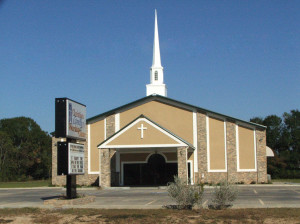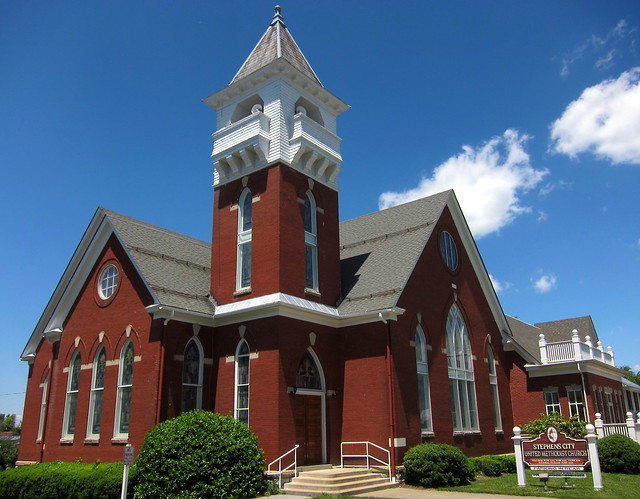The Pew Research released a new study confirming that Millennials are exiting the church. If you missed the articles, you can read more HERE and HERE.
I have often heard the expression, “The Church is one generation from extinction” as a reason why youth/children’s ministry is important for the church.
I hate that statement – because it is not true.
The church is not in danger of extinction. Do not fret over the future of HIS church, but have faith in its Owner and Builder and the One who says, “I will always have remnant unto myself.” (Romans 11:3-5) God’s church will stand forever, and even “the gates of hell will not prevail against it.” (Matthew 16:18)

© 2015 Paxson Woelber, Flickr | CC-BY | via Wylio
While the future of the church is NOT at stake; however, the future church may look different.
In the Old Testament, God’s people experienced many times of transition. In Ezra 3, the Jews having been released from Babylonian captivity are working to rebuild the temple. It was a monumental time of celebration; however, we also read:
Yet many of the priests and Levites and heads of fathers’ households, the old men who had seen the first temple, wept with a loud voice when the foundation of this house was laid before their eyes.
Those who had seen the beauty of the first temple were sad because this new temple did not measure up. The passage describes how that within the crowd – some wept while others rejoiced.
As I read Ezra 3, I ask a few questions.
- Did the change in the temple’s foundation display God’s abandonment of His people?
- Did the change in the temple’s foundation reveal that God’s glory was fading?
- Did the change in the temple’s foundation herald that God’s working would be lessened?
I believe that the answer to all three questions is NO. So, what was the cause of their tears?
The future of the church is not at stake; however,

© 2014 Hoshi_sae, Flickr | CC-BY | via Wylio
There will be tears – for those who cling to past forms and formulas of religious institutions. Those who sit in leadership will weep as they see ‘their power’ slipping away.
Tears will fall for the loss of their “majority”.
Tears will fall for the loss of big church and big budgets.
There are tears for those who live in days gone by still looking for God to move as He did in days past. There will be tears.
Tears will fall for those who can only see what was, and assume that what was is what should be.
God’s Spirit is not confined to the forms and formulas of today’s world. God’s work is often found outside religious institutions (If in doubt, check the New Testament.). God’s voice still speaks to those who listen, and has not lost its power.
His spirit is powerful, and working in lives. His breath can shake the mountains. His word can break stone and melt iron. His will can move the hardest of hearts and stir the slumber to action. So may we cling to the power of the word. May we read the word. May we bring his word to those in power.
Lord, may I bring introduce the power of your word to a new generation. And sit back and watch in wonder and amazement as you work in new ways, in new forms, and to a people that You have reserved unto Yourself.
May I not cry at the laying of a new foundation. May I rejoice. May I save my tears. May my hope rest in God alone.
Sola de Gloria.
 Dr. G. David Boyd is the Founder and Managing Director of EA Resources, a non-profit that focuses on providing resources to churches and parents who love emerging adults.
Dr. G. David Boyd is the Founder and Managing Director of EA Resources, a non-profit that focuses on providing resources to churches and parents who love emerging adults.












 I had rehearsed what I was going to say and had a response for each of the objections I was sure my pastor would enumerate. I waited until the waitress brought us our coffee, and then I began to share a bit of my heart with this man who had watched me grow up and in recent years had become more of a mentor.
I had rehearsed what I was going to say and had a response for each of the objections I was sure my pastor would enumerate. I waited until the waitress brought us our coffee, and then I began to share a bit of my heart with this man who had watched me grow up and in recent years had become more of a mentor. 





 r. G. David Boyd is the Founder and Managing Director of EA Resources.
r. G. David Boyd is the Founder and Managing Director of EA Resources.